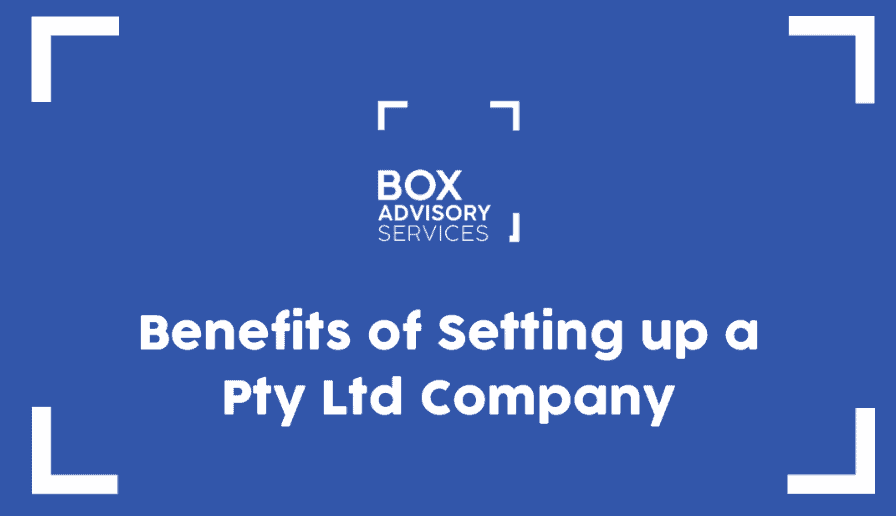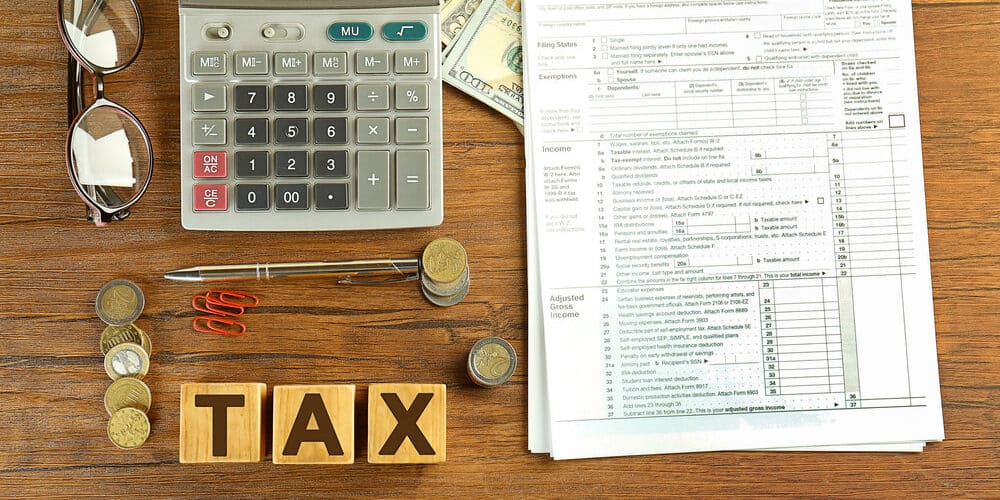
BY
|
HECS Payments Guide for Business Owners and Employees
If you’re an Australian who attended university, there’s a good chance you have a HECS-HELP debt. The Higher Education Loan Program (HELP) is a key component of Australia’s education loan program help, designed to assist students in managing their university tuition fees.
This government loan scheme has helped countless students afford their tertiary education, but it’s important to understand how repayments work once you enter the workforce.
As a business owner or employee, managing your HECS debt is necessary to maintain a balanced budget and avoid surprises come tax time.
In this article, we’ll break down the key aspects of HECS payments, providing you with the knowledge and tools to confidently navigate this aspect of your financial life.
How Does Higher Education Loan Program Help Students?
HECS-HELP (Higher Education Contribution Scheme-Higher Education Loan Program) is a government initiative designed to support eligible students in paying for their university tuition.
If you’re an Australian citizen and studied at a Commonwealth-supported university, your tuition fees were likely deferred to a HECS-HELP loan. This means that instead of paying upfront, you can start repaying your debt once your income reaches a certain threshold.
One of the benefits of the HECS-HELP scheme is that it allows students to focus on their studies without the immediate financial burden of student debt.
However, it’s critical to understand that this is a considered student loan debt, and you must repay it based on your income after graduation. It’s also important to regularly check your HECS-HELP debt balance to stay informed about your financial obligations.
When Triggers the Start of Payments for a HECS/HELP Loan?
The Australian government sets income thresholds to determine when you must start making compulsory HECS loan repayments.
The minimum threshold for compulsory repayments for the 2024-25 financial year is $54,435. If your taxable income falls below this amount, you are not required to make any repayments on your HECS debt.
Note: The compulsory repayment threshold is subject to change each financial year, so it’s always a good idea to stay informed about the current repayment requirements.
As your income increases above the minimum threshold, so does your repayment rate. The table below outlines the repayment rates for the 2024-25 financial year:
| Repayment income (RI) thresholds | Repayment rate (% of repayment income) |
| Below $54,435 | Nil |
| $54,435-$62,850 | 1.0% |
| $62,851-$66,620 | 2.0% |
| $66,621-$70,618 | 2.5% |
| $70,619-$74,855 | 3.0% |
| $74,856-$79,346 | 3.5% |
| $79,347-$84,107 | 4.0% |
| $84,108-$89,154 | 4.5% |
| $89,155-$94,503 | 5.0% |
| $94,504-$100,174 | 5.5% |
| $100,175-$106,185 | 6.0% |
| $106,186-$112,556 | 6.5% |
| $112,557-$119,309 | 7.0% |
| $119,310-$126,467 | 7.5% |
| $126,468-$134,056 | 8.0% |
| $134,057-$142,100 | 8.5% |
| $142,101-$150,626 | 9.0% |
| $150,627-$159,663 | 9.5% |
| $159,664 and above | 10% |
These repayment rates ensure that those with higher incomes contribute a larger percentage of their earnings towards their HECS debt, while those with lower incomes have more manageable repayments.
Let’s look at how HECS payments are calculated based on these thresholds and rates, using some case studies.
Case study 1: Emma on a $60,000 salary
Emma finished her communications degree last year and has a HECS balance of $25,000.
- Taxable income: $60,000
- Relevant threshold band: $54,435 – $62,850
- Compulsory repayment rate: 1 %
Calculation
1 % × $60,000 = $600 for the 2024-25 year.
Through PAYG withholding, Emma’s employer will send about $11.55 each week ($600 ÷ 52) to the ATO. At tax-time the full $600 is credited against her HECS balance, reducing it to $24,400 (before any indexation). Because her repayment rate is low, she can still make voluntary extra payments if she wants to clear the debt faster.
Case study 2: Liam on a $123,000 salary
Liam is a civil engineer with a remaining HECS balance of $45,000.
- Taxable income: $123,000
- Relevant threshold band: $119,310 – $126,467
- Compulsory repayment rate: 7.5 %
Calculation
7.5 % × $123,000 = $9,225 for the 2024-25 year.
His employer withholds roughly $177 each week ($9,225 ÷ 52). When Liam lodges his tax return, the full $9,225 is applied to his HECS debt, cutting it to $35,775 (before indexation). Because his income is well above the threshold, the higher rate accelerates the debt reduction without requiring any extra out-of-pocket payments from him during the year.
What is the Indexation of HECS/HELP Debt?
HECS-HELP loans don’t charge interest the way a bank loan does.
Instead, the balance is indexed once a year to keep pace with the cost of living. Until 2024 the adjustment simply matched the Consumer Price Index (CPI).
From 1 June 2025 the law switches to the lower of CPI or the Wage Price Index (WPI), so your debt will only grow at the gentler of the two inflation measures.
Indexation is applied on 1 June to the portion of your debt that is at least 11 months old. Any amounts you borrowed or repaid inside the last 11 months are excluded from that year’s calculation.
You also don’t receive a bill on the day, your loan balance on ATO Online simply rises by the indexation factor.
How Does Indexation Impact Your Compulsory Repayment Amount?
- Repayment pace vs debt growth: Your compulsory (and any voluntary) repayments chip away at the principal, while indexation nudges the balance upward. If your repayments are smaller than the yearly indexation, your debt can actually grow.
- Higher balances feel larger: In 2023 the CPI spike of 7.1 % added hundreds or even thousands of dollars to many graduates’ debts, prompting the rule change to the lower-of-CPI-or-WPI approach.
- One-off relief in 2025: Legislation also gives every HELP borrower a 20 % discount on their outstanding balance immediately before indexation is applied on 1 June 2025. Indexation is then calculated on the reduced figure.
Quick example
Case: Emma after indexation
Balance on 31 May 2025: $24,400 (after her compulsory repayments)
20 % discount: −$4,880 → $19,520
Indexation factor 3 % (lower of CPI or WPI for the year)
$19,520 × 3 % = $586
New balance on 1 June 2025: $20,106
Emma’s discount wipes almost $5k off her debt, and the smaller balance means indexation adds only $586, far less than it would have under the old CPI-only rule.
Making HECS Payments
Annual Compulsory Repayments for Employees
If you’re an employee, your employer will withhold additional tax from each pay to cover your compulsory HECS debt repayments. The amount withheld is based on the repayment rate that applies to your income.
When you lodge your tax return, the Australian Taxation Office (ATO) calculates your actual repayment amount based on your taxable income and applies it against your outstanding HECS debt. The repayment amounts are reflected in the income tax notice issued by the ATO, which details your taxable income and the corresponding repayment obligations.
This process streamlines employee loan repayments, as the money is automatically deducted from your pay, and you don’t need to worry about setting aside funds for your HECS debt.
Compulsory Repayments for Self-Employed Individuals
For self-employed individuals, the process is slightly different. When you lodge your tax return, you must calculate your compulsory repayment amount based on your taxable income. Once calculated, you pay this amount to the ATO, which applies to your HECS debt.
Self-employed individuals must factor in their HECS repayments when budgeting and setting aside money for tax obligations. By staying on top of your repayments, you can avoid any surprises or financial strain at tax time.
Voluntary Repayments
In addition to compulsory repayments, you can make voluntary repayments towards your HECS debt at any time. This is a great way to pay off your debt faster and save on interest.
What Employers and Business Owners Must Do
Whether you run a café with three casual staff or a company with hundreds of employees, the moment you start paying wages you also take on the job of collecting HELP repayments for the ATO.
Here is what is expected of you when it comes to your staff’s student loan repayments.
1. Collect the right information at onboarding
Every new worker must complete a Tax File Number declaration. Question 9 asks if they have study and training loans. If they tick “Yes”, your payroll system has to apply the Study and Training Support Loans (STSL) tax tables to every pay until the employee supplies a new form that says otherwise.
2. Withhold the extra tax each payday
The STSL tables add an amount on top of ordinary PAYG withholding. Modern payroll software automates this, as long as the employee’s STSL flag is switched on, the correct extra amount is withheld according to their gross earnings for that period. If you are still using manual tables, you need to reference the Weekly, Fortnightly or Monthly STSL schedules published by the ATO for 2024-25.
3. Report through Single Touch Payroll (STP)
Each time you lodge an STP event, the withheld HECS component is bundled into the total tax withheld for that employee. The ATO matches these figures to the employee’s TFN and credits the compulsory repayment against their loan balance after they lodge their tax return.
4. Remit the withholding on time
You pay all PAYG amounts (including the HECS component) to the ATO on your normal BAS cycle, monthly or quarterly. Missing a payment can trigger penalties and, in serious cases, director-penalty notices that make company directors personally liable for the unpaid withholding.
5. Issue accurate income statements
At year-end your payroll software finalises each employee’s income statement via STP. This tells the ATO exactly how much was earned and how much was withheld, allowing the tax return to calculate the final compulsory repayment.
6. Pay attention to your own salary
If you draw a wage from your own business, the same rules apply. Make sure your own TFN declaration shows that you have a study loan if you still owe HECS, otherwise the system will under-withhold and you could face a large bill at tax time.
Failing to withhold the HECS component does not wipe the debt, it only pushes the burden back onto the employee at tax-return time and exposes the business to penalties and interest.
Putting the correct settings in your payroll software from day one keeps both you and your staff out of trouble and ensures everyone chips away at their student loans as the law intends.
Frequently Asked Questions
What Happens To My HECS Payments if I Move Overseas?
If you move overseas and your worldwide income exceeds the minimum repayment threshold, you must still make compulsory HECS repayments to the ATO.
Certain types of income, such as exempt foreign employment income, may also affect your repayment obligations if you move overseas. You’ll need to lodge an overseas levy return to report your income and pay any necessary repayments.
What Happens to my HECS Debt if I Pass Away?
In the event of your death, any outstanding HECS debt is cancelled. Your estate will not be responsible for repaying the remaining balance.
Key Takeaways
- HECS-HELP is a government loan scheme that helps eligible Australian students pay for their university tuition fees. It allows them to defer payment until their income reaches a certain threshold.
- Compulsory HECS repayments begin once your taxable income reaches $54,435 for the 2024-25 financial year.
- Repayment rates increase progressively as your income rises, ranging from 1% to 10% of your taxable income.
- Compulsory repayments are automatically withheld by employees’ employers, while self-employed individuals calculate and pay their repayments when lodging their tax returns.
- Voluntary repayments can be made at any time.
- Employers must ensure their payroll is correctly set up to account for HECS/HELP payments
- If you move overseas and your worldwide income exceeds the threshold, you must still make repayments by lodging an overseas levy return.
- Outstanding HECS debts are cancelled upon the debtor’s death.



